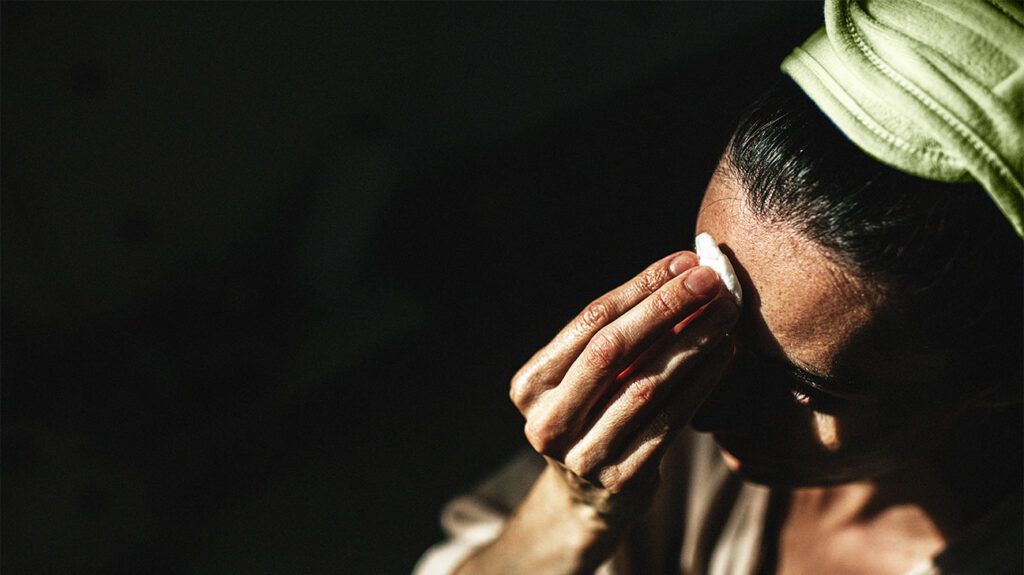Different types of facials can provide relief for rosacea and help soothe skin irritation. Facials with gentle ingredients can hydrate and nourish rosacea-prone skin, which may help alleviate symptoms.
Rosacea is a chronic inflammatory skin condition that can cause discoloration, flushing, and sometimes acne-like breakouts, usually on the face. While there is no specific cure for rosacea, various treatments aim to alleviate its symptoms and improve the skin’s overall appearance.
Facials have the potential to provide relief and soothe skin irritation. Other treatments include topical creams, oral medication, laser therapy, and dietary changes.
In this article, we explore the role of facials in managing rosacea, discussing different types of facials, their benefits, risks, and other treatment options available for individuals with rosacea.

Facials can help improve skin health. However, not all facials suit individuals with rosacea, as some ingredients may worsen symptoms. The types of facial that may help rosacea include:
- cleansing
- moisturizing
- extraction
- massage
- masks
What is rosacea?
Rosacea is a common inflammatory skin condition, affecting
Studies suggest that rosacea may occur
It primarily occurs in the face, often appearing discolored on the cheeks, nose, chin, and forehead. It may also cause small, discolored bumps or pustules. In severe cases, thicker skin and visible blood vessels may develop.
While the exact cause of rosacea remains unknown, factors such as genetics, abnormal blood vessels, and inflammation may play a role. Triggers for rosacea flare-ups vary among individuals but may include:
- sun exposure
- spicy foods
- alcohol
- stress
- certain skin care products
- weather
Learn more about rosacea.
Cleansing facials for rosacea focus on gently removing impurities and excess oil without irritating the skin. These facials often incorporate gentle cleansers and lukewarm water to cleanse thoroughly while avoiding harsh ingredients or vigorous scrubbing.
Cleansing facials for rosacea avoid using steam and hot towels as they can exacerbate discoloration and inflammation in individuals.
Moisturizing facials help keep out impurities and irritants that may aggravate sensitive skin, which is crucial in hydrating and nourishing rosacea-prone skin. They incorporate gentle, noncomedogenic ingredients that help replenish the skin’s moisture barrier and soothe irritation, including:
Avoiding products with fragrances, alcohol, and other potential irritants is essential to prevent worsening of rosacea symptoms, such as:
- burning
- stinging
- itching
- irritation
Rosacea-friendly facials specifically address the unique needs of individuals with rosacea. These facials often incorporate calming and anti-inflammatory ingredients such as:
These ingredients aim to reduce discoloration and soothe sensitive skin. Cool compresses or masks containing soothing ingredients can immediately relieve irritation and inflammation.
Facials can offer several benefits for individuals with rosacea, including:
- Reduction in discoloration: Some facial treatments can help minimize discoloration and flushing, promoting a more even complexion.
- Improvement in texture: Gentle exfoliation in facials can remove dead skin cells and unclog pores, leading to smoother, clearer skin.
- Hydration: Moisturizing facials help hydrate and nourish dry, irritated skin, enhancing its overall health and resilience.
- Relaxation: Beyond skin care benefits, facials provide a relaxing experience that can help alleviate stress, a common trigger for rosacea flare-ups.
While facials can benefit individuals with rosacea, there are potential risks to consider. Aggressive or improper techniques, as well as the use of harsh products, can exacerbate rosacea symptoms and cause further irritation.
Individuals should avoid ingredients that can exacerbate symptoms, including:
It is essential to consult with a qualified aesthetician or dermatologist with experience in treating rosacea to ensure that the chosen facial treatment is safe and suitable.
Individuals with rosacea should avoid facials and skin care treatments that involve:
- Abrasive scrubs: Harsh exfoliants and abrasive scrubs can aggravate sensitive skin and trigger inflammation.
- Hot treatments: Steam, hot towels, and other heat-based treatments can dilate blood vessels and worsen discoloration and flushing.
- Chemical peels: Chemical peels containing strong acids may be too harsh for rosacea-prone skin and can cause irritation and sensitivity.
- Fragrant products: Skin care products containing fragrances, alcohol, menthol, and other potential irritants can trigger rosacea flare-ups.
In addition to facials, several
- Topical medications: Prescription creams and gels containing antibiotics,
antiparasitics , orvasoconstrictors can reduce inflammation and control breakouts. - Oral medications: Sometimes, a doctor may prescribe oral antibiotics or oral medications such as isotretinoin to manage more severe rosacea.
- Laser therapy: Laser and light-based treatments can help shrink visible blood vessels and discoloration, improving overall skin tone and texture.
- Dietary changes: Avoiding triggers such as spicy foods, alcohol, and caffeine may help reduce the frequency and severity of rosacea flare-ups.
Facials can be valuable treatments for individuals with rosacea, offering benefits such as reducing discoloration and improving texture, hydration, and relaxation.
However, choosing gentle, rosacea-friendly facials that a professional can tailor to the skin’s specific needs is essential, avoiding treatments that may exacerbate symptoms.
Consulting with a qualified skin care professional is crucial to ensuring the safe and effective management of rosacea and exploring other treatment options that may be beneficial for this skin condition.
